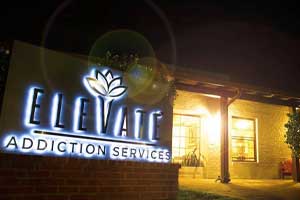Skip To Rehab Listing
Alcohol and Drug Treatment Service Settings and Recovery Techniques in Morgan Hill, CA.
People in Morgan Hill who have an alcohol and drug dependency problem have multiple local recovery programs from which they can choose including: outpatient substance abuse treatment services, detoxification facilities, inpatient rehabs, short term drug rehab centers, long term drug and alcohol rehab centers
Also, individuals can pick from a range of approaches to their therapy in order to obtain the most effective care, such as: relapse prevention, group therapy, contingency management/motivational incentive, dialectical behavior therapy, trauma therapy, matrix model
Special Programs for Addiction Treatment
Alcohol and drug rehab programs in Morgan Hill can also handle a patient's particular substance abuse rehab needs through a variety of special programs. These services can include the following: child care for clients children, clients referred from the court/judicial system, suicide prevention services, co-occurring mental and substance abuse disorders, veterans, aftercare/continuing care
Rehab Payment Options
The cost of drug and alcohol treatment can be a worry for many patients and their loved ones. That is why local alcohol and drug rehab programs provide several payment options that cater to the various financial realities of patients. Here are some of the forms of payment accepted by these treatment centers: private insurance, cash or self-payment, medicaid, medicare, payment assistance, other state funds, state welfare or child and family services funds
On many occasions, these programs will work with clients to figure out the best means of payment for their needs.
People who have an issue with drug and alcohol abuse can receive effective care in Morgan Hill, California through a wide variety of treatment programs, treatment techniques, specialized programs, and payment options. The level of choice makes alcohol and drug treatment accessible for a great deal of local people in need.
Commonly Asked Questions about Addiction and Treatment
Can a drug addict change?
Yes, a person struggling with drug addiction can certainly change. It's important to understand that addiction is a chronic, but treatable, disease. Like other chronic diseases, it's not about a "cure" but about managing the condition effectively.
Overcoming addiction typically involves a combination of self-awareness, willingness to change, support, and professional treatment. A key part of the process is the individual's motivation to improve their life and overcome their dependency on substances.
However, recovery from addiction often involves setbacks and challenges. The process can be difficult and time-consuming, requiring substantial personal commitment and support from others. Professional treatment can take several forms, including detoxification, medication-assisted therapy, counseling, and support groups.
Many people who were once addicted to drugs have gone on to live productive, healthy, and fulfilling lives. The journey to recovery is often a lifelong process of maintaining sobriety and managing triggers and cravings.
While change is indeed possible for someone struggling with addiction, it is typically a complex process requiring substantial effort, support, and treatment.
What are the causes of drug addiction?
-
Genetic predisposition: Research has shown that genetic factors can contribute to an individual's vulnerability to drug addiction. Certain genes may influence how a person's brain processes and reacts to drugs, making them more prone to addiction.
-
Brain chemistry: Drugs affect the brain's reward system by increasing the release of neurotransmitters such as dopamine and serotonin. This leads to feelings of pleasure and euphoria, which can reinforce drug-seeking behaviors and contribute to the development of addiction.
-
Environmental factors: Exposure to drug use in one's surroundings, such as through family members or friends, can increase the likelihood of experimentation and eventual addiction. Additionally, factors like high levels of stress, poverty, and a lack of social support can increase vulnerability to addiction.
-
Psychological factors: Emotional and mental health issues like depression, anxiety, and trauma can make individuals more susceptible to drug addiction. These issues can lead people to self-medicate with drugs in an attempt to cope, ultimately increasing the risk of addiction.
-
Early exposure: Experimenting with drugs at a young age can increase the likelihood of developing addiction later in life. The adolescent brain is still developing, making it more susceptible to the effects of drugs and the development of addiction.
-
Availability and accessibility: Easy access to drugs can increase the likelihood of drug use and addiction. When drugs are readily available in a person's environment, the chances of experimentation and continued use increase.
How does drug addiction affect the family unit?
Drug addiction can have far-reaching consequences not only for the individual struggling with substance use, but also for their family unit. Family members may experience various emotional, social, and financial challenges as a result of a loved one's addiction. Some of the ways drug addiction can impact the family unit include:
- Emotional strain: Family members may experience a range of emotions, such as fear, anger, frustration, guilt, and sadness, as they grapple with their loved one's addiction. These emotions can be overwhelming and may lead to mental health issues, such as anxiety or depression, among family members.
- Family dynamics: Drug addiction can alter family dynamics, leading to increased conflict, mistrust, and communication breakdowns. This may result in a dysfunctional family environment and strained relationships among family members.
- Role changes: Family members may be forced to take on new roles to compensate for the challenges brought on by the addiction. For example, a spouse or older child may assume additional responsibilities for managing the household, providing financial support, or caring for younger siblings.
- Neglect of responsibilities: The individual struggling with addiction may neglect their responsibilities as a parent, spouse, or sibling, leaving other family members to bear the burden of these responsibilities.
- Financial strain: The costs associated with obtaining drugs and potential job loss due to addiction can place a significant financial burden on the family. This may result in debt, inability to meet basic needs, or even homelessness.
- Legal issues: Family members may face legal problems as a result of their loved one's drug-related activities, such as theft or drug possession. Legal issues can create additional financial strain and emotional stress for the family.
- Safety concerns: Drug addiction can expose family members to unsafe situations, such as violence, drug-related criminal activities, or the presence of dangerous substances within the home.
- Impact on children: Children in families affected by drug addiction may experience emotional, behavioral, and developmental challenges. They may be at greater risk for academic difficulties, mental health disorders, and substance abuse themselves later in life.
- Social isolation: Family members may become socially isolated due to stigma, shame, or fear associated with their loved one's addiction. This can lead to a loss of support networks and further emotional strain.














